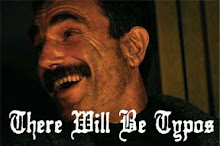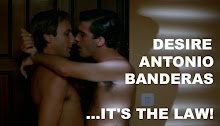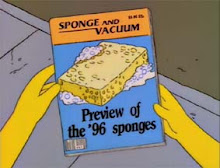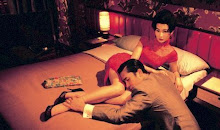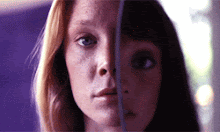Sunday, August 30, 2009
Lovely, Still, Trailer, Watch
Monday, August 17, 2009
Defensive Cinema #5: Marie Antoinette (2006)
Defensive Cinema is a series devoted to films seemingly dismissed by the greater population. And me getting all defensive like and telling you why my opinions hold more water than yours.
"I want to be forgotten,
and I don't want to be reminded."
'What Ever Happened' - The Strokes
What to do for pleasure?"
'Natural's Not In It' - Gang of Four
A marriage to a king who would rather make keys than an heir is a good starting point. Marie's pregnancy alone is held as a point of uniting families and countries. If she can't conceive of a male child to carry on the legacy, she's failed as a woman and someone of her high position. And yet we remember her best throughout history for, "Let them eat cake." Good comedic timing was clearly one of Marie Antoinette's best features, to compliment her stylish boots and hairstyles that would cripple a woman of weaker pedigree.


Marie Antoinette (Kirsten Dunst) has a celebrity experience not dissimilar to those of current times: a breakthrough ingenue with an adoring public, but give it some time and she's lucky to be harassed by a torch-wielding mob. Here a historically maligned woman is given second glance at the level of humanity that floods all of Coppola's work. Her portrait is sympathetic, loose of the historical staples, free in form and function. Her films dissolve into maturity as they progress, much like the females at their center, and gain unexpected emotional weight given their ethereal atmospherics at times. Amidst all that costumed drama, Coppola defies labels and tone in order to make a biopic of real value. It's one thing to tread a historical timeline and define a figure through their era, it's another thing to have their purpose really reflect modern dilemmas. She finds the soul in someone skewed by history as not having one.

"Rousseau says, 'If we assume man has been corrupted by an artificial civilization, what is the natural state? The state of nature from which he has been removed? Imagine wandering up and down the forest, without industry, without speech and without home.'"




Marie's eventual end doesn't leave us with the bitterness of her real-life beheading, instead her withdrawal into nature and a solemn acceptance of her fate. She sacrificially bows to her public and fades into the sunset. It's a period-piece at its most feeling and playful. Anachronistic, without dialects, opulent and detailed -- yet not particularly interested in the details. It's especially refreshing when we consider films like Milk, Ray, La Vie en Rose, or any number of biopics that stick to a base formula, and see that Coppola's take is far more adventurous and far less defining. Marie Antoinette isn't manufactured here as a hero, villain or tragic figure, even if Coppola finds each of those beats quite effortlessly. History has already labeled her, so it's Coppola's job to uphold those tags, challenge them and toss them aside completely.

In keeping with her own burgeoning legacy, Coppola compiles another soundtrack fit for a queen. It's unusual for a film set in royal Versailles, but it takes to Marie's emotions with dreamlike ease and killer beats. From partying to prose, it features intoxicating tunes from the likes of New Order, The Cure, The Radio Dept. and Bow Wow Wow. Shoe-gazer music for literally gazing at shoes -- really extravagant shoes.
If Marie Antoinette was a product of her time, her surroundings and her stylist, Sofia Coppola aims to re-brand her. In a celebrity culture, anything can so easily be taken out of context. If Marie Antoinette really said with such sly disregard, "Let them eat cake," Coppola gives us time to digest that beyond simple condemnation. Lucky for us it's elegant, layered and entirely fulfilling. Coppola has her cake and we eat it, too.
Subscribe to:
Comments (Atom)



